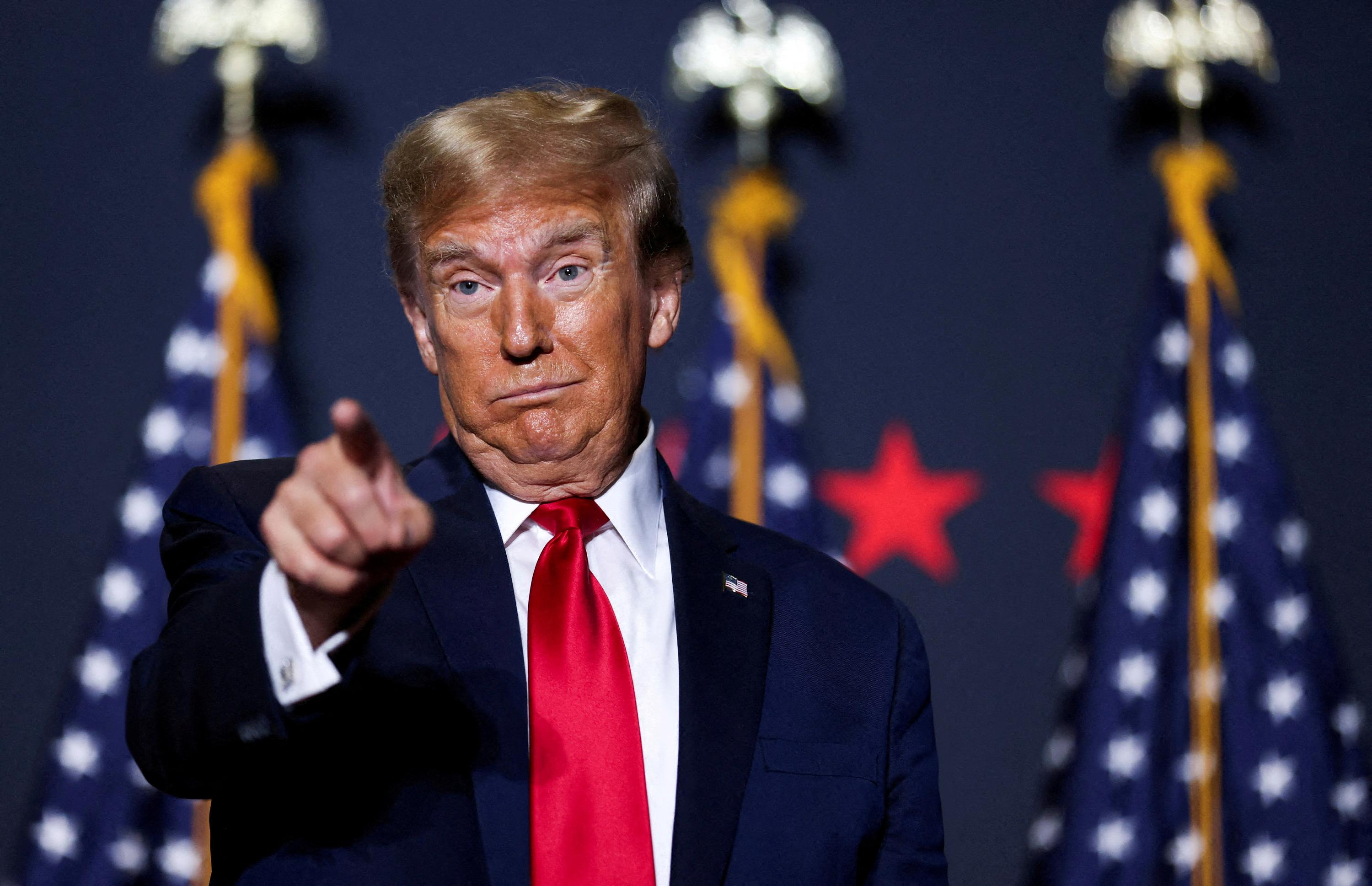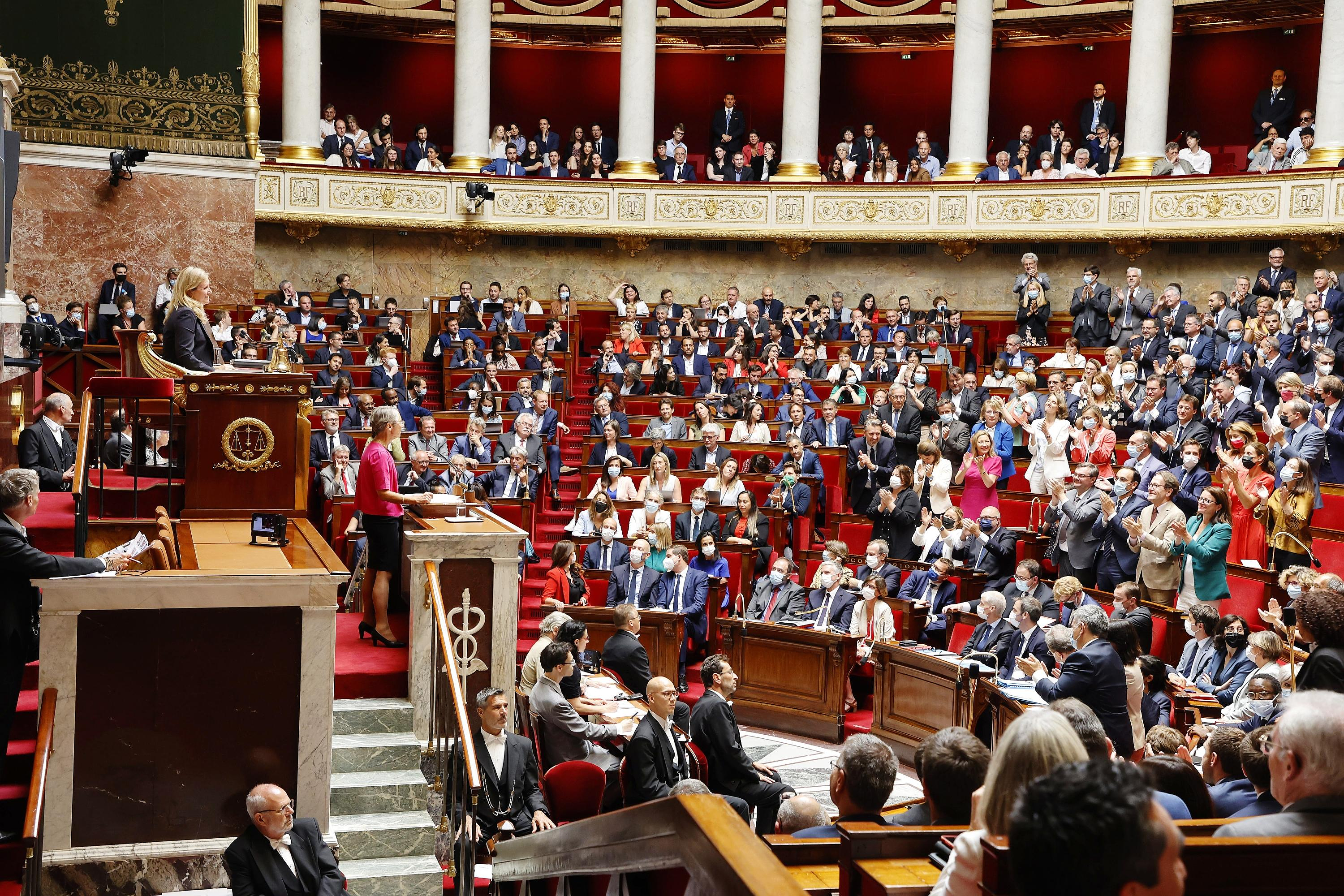Bad times for Donald Trump. The former President of the United States (2017-2021) makes explosive sentences in preparation for the American election on November 5. But he also makes headlines for his legal cases. In mid-February, the businessman was ordered to pay $454 million in fines for financial fraud within his real estate empire, but on Monday evening, his lawyers admitted that their client was unable to bring the New York justice guarantee of payment.
Unsurprisingly, Donald Trump immediately denounced in a press release a fine “unconstitutional, un-American, unprecedented and practically impossible for ANY company, including a company as successful as mine”.
Without a 100% guarantee on the fine, the appeal filed by the Republican candidate in February before another jurisdiction, but without a second trial, will not be suspensive. On February 28, the appeal section of the New York Supreme Court rejected a $100 million guarantee offer from the former president, and affirmed that the political tribune must pay the entire sum by to March 25. If this is not the case, the competent authorities could seize his property. Does Donald Trump risk ineligibility in this matter? Le Figaro takes stock.
No. Donald Trump claimed last year to be “worth several billion dollars,” that he had at his disposal around $400 million in cash, not counting his real estate and his various financial investments. The New York Attorney General instead estimated the total amount at two billion.
The lawyers of the former tenant of the White House will try to drag out the decision of the New York court, a scenario which would give their client a respite of several months. The risk would be to see additional interest added during the appeal judgment. “They will assert that such a considerable sum could be worth the destruction of a company to obtain additional time,” judges Nicole Bacharan, political historian specializing in the United States.
However, the tycoon will have to deal with the ban on requesting loans from banks registered in New York, which will reduce the range of choices for obtaining a bank loan. “None of the 30 legal bail guarantor companies requested by Donald Trump wanted to provide bail,” continues Nicole Bacharan.
Yes and no. American federal election law is clear regarding the use of campaign funds: it is strictly forbidden to make personal use of them, exposing yourself to legal action otherwise. On the other hand, he could indeed draw on political action committees (Political Action Committees), known as PAC.
The latter is a private organization that can receive sums from individuals or political parties, with a very specific ceiling: $3,330 per election to a candidate, $5,000 to a PAC and $10,000 to a political party. And the Republican candidate is no stranger to this type of maneuver to cover up his escapades: his PAC, Save America, to which we must add a few other sources of funding, spent $76.7 million in legal fees. “He uses around five million euros per month in lawyer fees,” explains Nicole Bacharan.
It is therefore likely to review the same process in the days or weeks to come, without the Federal Electoral Commission saying anything again as the process has become common practice. Another problem in sight: “The Republican camp is seriously short of money compared to the Democrats,” recalls the specialist of the country across the Atlantic.
No, the risks are low. With the various legal appeals, a final decision will not be expected before at least this summer by the New York Court of Appeal. In addition, in the event that the billionaire were to provide proof of ability to pay the fine, whether in the form of cash or assets he owns, then he could benefit from a reprieve. “This is a matter that is not at the federal level, and therefore has no impact on the presidency,” explains Nicole Bacharan.
On the other hand, his status as former president does not exclude him from consequences after a judgment. If payment is refused, the former television producer could see his salary seized by the courts, as well as his property. Imprisonment cannot be ruled out according to Reuters, but highly improbable. The judge in the civil fraud case, based on Donald Trump's recent legal troubles, also appointed an additional monitor to oversee Trump Tower's finances.
“They have enormous power, especially for someone like Trump who owns physical assets inside the state,” law professor Will Thomas told Reuters. The court could say, “We’re going to freeze your bank account.” Or worse yet, he could say, 'We're seizing Trump Tower and putting it up for sale.'" In summary, the case concerns a financial aspect without having any connection or direct impact with politics.
Also read: For 70% of Americans, the president should not be protected from criminal prosecution for crimes committed during his mandate
Yes. If justice will most likely not stand in his way to the Oval Office, public opinion could be affected by a case which demonstrates the financial difficulties of the potential head of state of the leading world power. “Will a majority of Americans want to put in power a guy in such a shaky financial situation, bordering on fraud?” asks Nicole Bacharan. “It could scare voters. The affair could also harm him because small donors are not necessarily delighted to see their money in these affairs.
Not to mention that his image as a tycoon and financial genius would be damaged. “It must be painful for his legend,” says the United States specialist. He does not inspire confidence, he will beg from surety companies and he does not even win his case. His ego must have taken a hit.”

 Who was Dror Or, the Israeli father who died as a hostage in the hands of Hamas?
Who was Dror Or, the Israeli father who died as a hostage in the hands of Hamas?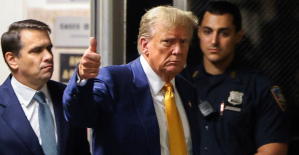 “Pay in cash”: at his trial, Donald Trump faced with an embarrassing recording
“Pay in cash”: at his trial, Donald Trump faced with an embarrassing recording Italy: a grandmother accidentally serves a bottle filled with wine to a baby, he has an alcoholic coma
Italy: a grandmother accidentally serves a bottle filled with wine to a baby, he has an alcoholic coma The mysterious skeletons of Hermann Göring's villa
The mysterious skeletons of Hermann Göring's villa Children born thanks to PMA do not have more cancers than others
Children born thanks to PMA do not have more cancers than others Breast cancer: less than one in two French women follow screening recommendations
Breast cancer: less than one in two French women follow screening recommendations “Dazzling” symptoms, 5,000 deaths per year, non-existent vaccine... What is Lassa fever, a case of which has been identified in Île-de-France?
“Dazzling” symptoms, 5,000 deaths per year, non-existent vaccine... What is Lassa fever, a case of which has been identified in Île-de-France? Sánchez cancels his agenda and considers resigning: "I need to stop and reflect"
Sánchez cancels his agenda and considers resigning: "I need to stop and reflect" Health carpooling, this source of savings which arouses the ire of patients and taxis
Health carpooling, this source of savings which arouses the ire of patients and taxis Tesla Model 3, MG4 and Dacia Spring.... With the end of the ecological bonus, these electric cars produced in China are seeing their sales fall
Tesla Model 3, MG4 and Dacia Spring.... With the end of the ecological bonus, these electric cars produced in China are seeing their sales fall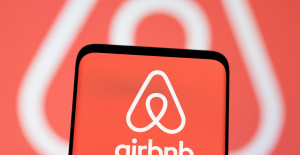 For the 2024 Olympics, Airbnb commits to fighting prostitution in its accommodation
For the 2024 Olympics, Airbnb commits to fighting prostitution in its accommodation “Shrinkflation”: supermarkets obliged to alert their customers from July 1
“Shrinkflation”: supermarkets obliged to alert their customers from July 1 The electro of Justice and the echoes of Portishead
The electro of Justice and the echoes of Portishead 1924 Olympic Games: according to his daughter, the hero of Chariots of Fire was “not a bigot”
1924 Olympic Games: according to his daughter, the hero of Chariots of Fire was “not a bigot” The “German Brothel” in Yvelines: an uncertain future for the ruined residence
The “German Brothel” in Yvelines: an uncertain future for the ruined residence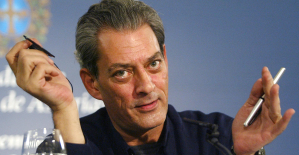 The eye of the INA: when Paul Auster visited Bernard Pivot
The eye of the INA: when Paul Auster visited Bernard Pivot Omoda 7, another Chinese car that could be manufactured in Spain
Omoda 7, another Chinese car that could be manufactured in Spain BYD chooses CA Auto Bank as financial partner in Spain
BYD chooses CA Auto Bank as financial partner in Spain Tesla and Baidu sign key agreement to boost development of autonomous driving
Tesla and Baidu sign key agreement to boost development of autonomous driving Skoda Kodiaq 2024: a 'beast' plug-in hybrid SUV
Skoda Kodiaq 2024: a 'beast' plug-in hybrid SUV The home mortgage firm rises 3.8% in February and the average interest moderates to 3.33%
The home mortgage firm rises 3.8% in February and the average interest moderates to 3.33% This is how housing prices have changed in Spain in the last decade
This is how housing prices have changed in Spain in the last decade The home mortgage firm drops 10% in January and interest soars to 3.46%
The home mortgage firm drops 10% in January and interest soars to 3.46% The jewel of the Rocío de Nagüeles urbanization: a dream villa in Marbella
The jewel of the Rocío de Nagüeles urbanization: a dream villa in Marbella Facing Jordan Bardella, the popularity match turns to Gabriel Attal’s advantage
Facing Jordan Bardella, the popularity match turns to Gabriel Attal’s advantage Europeans: a senior official on the National Rally list
Europeans: a senior official on the National Rally list Blockade of Sciences Po: the right denounces a “drift”, the government charges the rebels
Blockade of Sciences Po: the right denounces a “drift”, the government charges the rebels Even on a mission for NATO, the Charles-de-Gaulle remains under French control, Lecornu responds to Mélenchon
Even on a mission for NATO, the Charles-de-Gaulle remains under French control, Lecornu responds to Mélenchon These French cities that will boycott the World Cup in Qatar
These French cities that will boycott the World Cup in Qatar Monaco - Clermont: Minamino cornerstone, Fofana essential, the Clermont defense overwhelmed... The tops and the flops
Monaco - Clermont: Minamino cornerstone, Fofana essential, the Clermont defense overwhelmed... The tops and the flops Gymnastics: two gold medals for the Italian Manila Esposito during the European Championships
Gymnastics: two gold medals for the Italian Manila Esposito during the European Championships Champions Cup: in pain, Leinster beats Northampton and qualifies for the final
Champions Cup: in pain, Leinster beats Northampton and qualifies for the final Liga: Real Madrid crowned champion of Spain after FC Barcelona's defeat in Girona
Liga: Real Madrid crowned champion of Spain after FC Barcelona's defeat in Girona